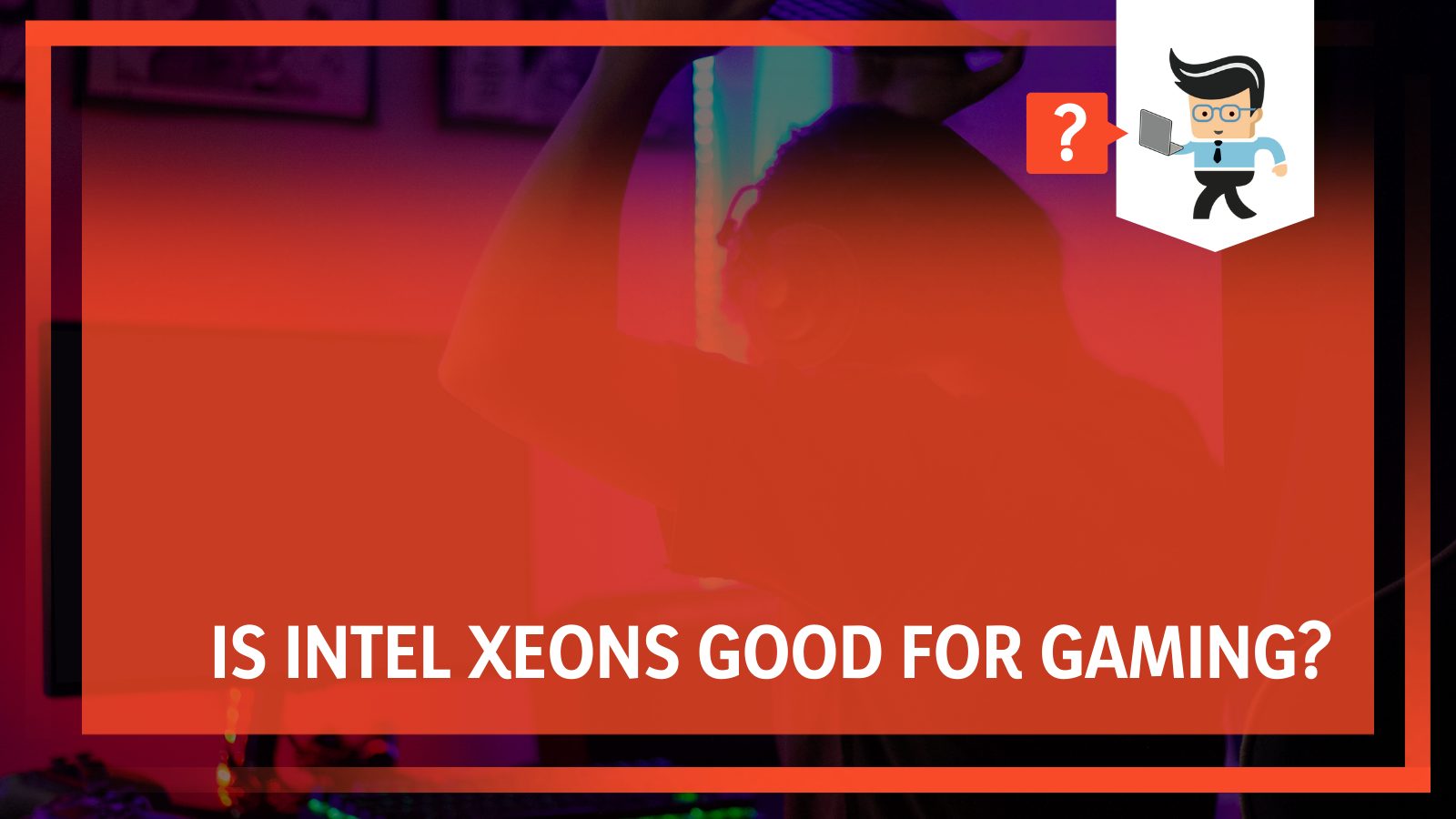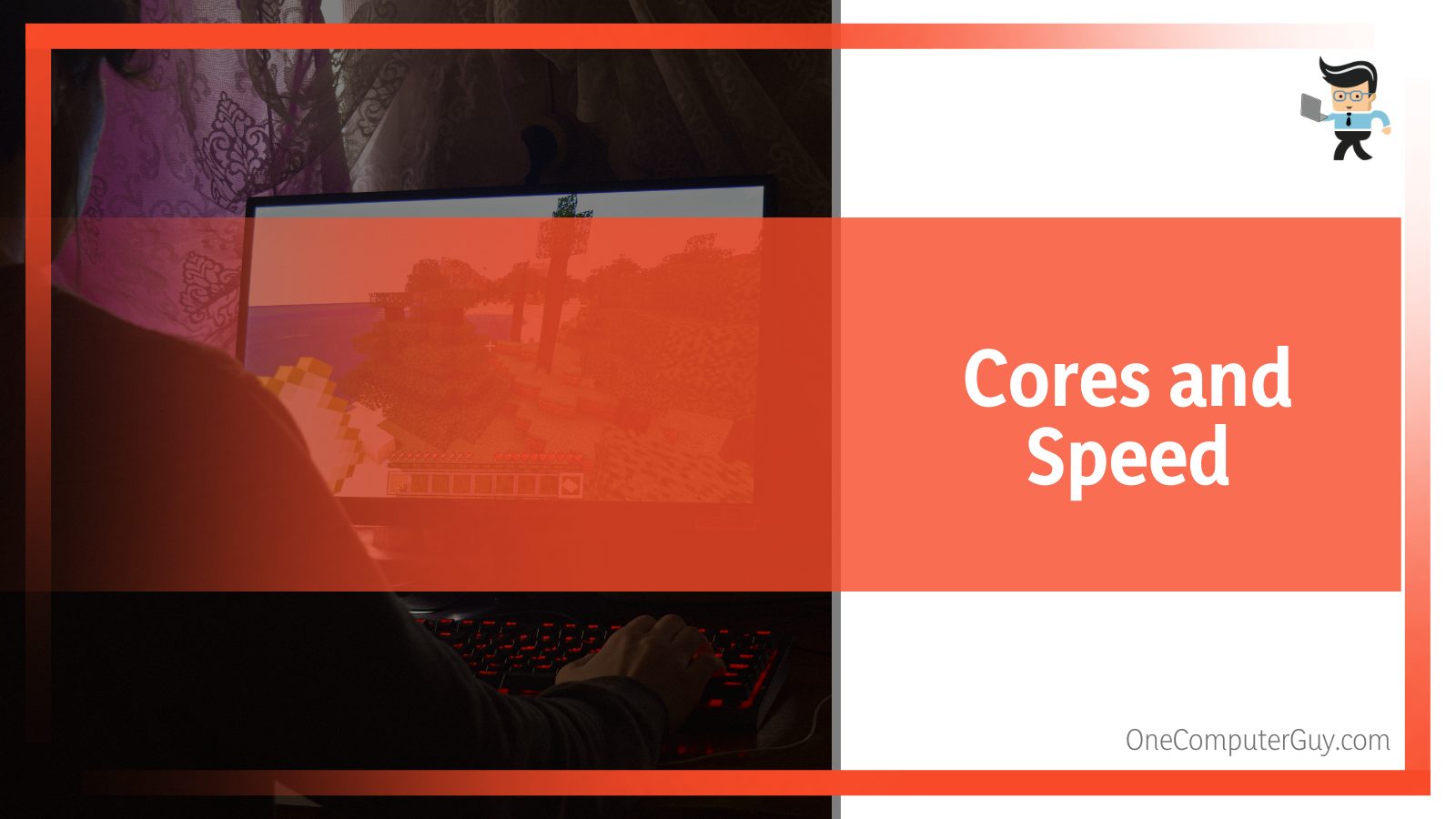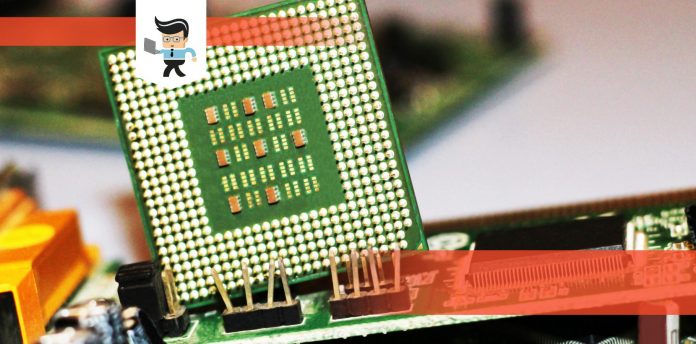Using Intel Xeons for gaming is a tricky situation, and the reason is that these processors were made to provide peak performance even when undergoing the most CPU-intensive tasks.

They are designed with multiple cores, which makes them powerful, but they don’t have enough speed, which is what most games require. Let’s dive deeper into this subject to help you understand whether or not you can use the Intel Xeons for gaming.
Contents
Is Intel Xeons Good for Playing Games?
Intel Xeons are good for gaming only if you’re looking to build a budget PC or a workstation that doubles as a gaming machine. However, if budget isn’t a problem, it’s better to get a core i5 or core i7 processor instead of a Xeon.
Xeon processors are high-end CPUs that are specifically designed for workstations, servers, businesses, and tasks that require significant computing power.
They come with features that are not commonly found on mainstream processors like the Intel Core i9s and AMD Threadrippers. Their most notable features are high core counts as a high-end Xeon CPU can have up to 28 cores and 56 threads.
Also, these CPUs tend to come with a huge amount of cache memory, which ranges from four to 60 megabytes though the sizes vary, depending on the series. Note that some of these CPUs come in smaller packages and some of the affordable options are hyper-threaded quad-core or dual-core CPUs that are ideal for less-demanding users.
While processors like AMD’s Threadripper and Intel Core i3, i5, i7, and i9 are popular among gamers and even regular users, the Xeons aren’t the kind of processors you hear about every day. The Xeons are geared towards demanding computing tasks and they have their unique sockets.
These CPUs are only considered good for gaming when you’re buying an old or used Xeon because that’s the only type of Xeon processor you can get for cheap. Otherwise, Xeons are typically expensive and thanks to that high price tag and the lack of speed, they are considered to be bad investments for gaming PCs.
– Cores and Speed
As we’ve mentioned above, Xeons are specifically made for tasks that require high computational power. Thanks to this requirement, they tend to be made up of cores than they are made for speed. The more cores a processor has, the higher its work rate. For this reason, Xeons are used in workstations, servers, and other rigs that require high processing power.
Take servers as an example; they are required to perform a lot of enterprise-level tasks. They share information with multiple machines, other servers, and tons of computers all across the world. Servers also need to transfer and share information faster than a typical person can click their mouse.

With a workload like this, you’ll need a processor that has more cache memory than RAM as well as a lot of cores. This requirement is why Xeon processors have more cores than their cousins in the Core series.
Now, a high work rate doesn’t equate to a fast work rate. Therefore, while Xeons can handle huge amounts of data and the newer generations can even be considered as fast, they are not speed-oriented.
This lack of speed is arguably the reason why gamers don’t use these processors in their PC as games tend to benefit more from CPU speed than CPU cores.
– Importance of Cores
Between 2007 and 2016, Intel’s Core i5 and i7 only had four cores and since then, game developers have been optimizing their games around these four cores.
While the i7 did feature hyperthreading during this time period, there was no significant difference between the i5 and i7 at that time. Now, developers are starting to optimize their games to support more cores, but this optimization hasn’t taken off yet and most games still work well with four cores.
For this reason, investing in an expensive Intel Xeon would be considered a waste of money, especially if you plan to play CPU-intensive games.
The high number of cores won’t have any significant effect on your gameplay. However, if you’re future-proofing or going for a budget build and you’re able to get a really cheap Xeon, then you can choose to purchase it instead of an expensive i5 or i7.
– Lower Clock Speeds
As explained earlier, Xeons are usually found in servers and workstations, which means that they work all day, all week, and all year, except if there’s an issue with the server or workstation. If they have a high clock, the processor will generate heat faster, and the hotter the CPU gets, the shorter its lifespan.
A server running non-stop throughout the year means that the CPU will be expending huge amounts of power while generating a huge amount of heat.
Since servers are not the kind of machines that should have consistent downtimes, a heat-generating CPU simply won’t cut it. This reason is why servers tend to utilize Xeons, which have low clocks and more cores instead of high clocks and fewer cores.
In fact, businesses that spend huge amounts of money on these servers expect them to run for a minimum of ten years non-stop. Having a processor with high clock speeds means that they won’t get value for the huge amount of cash they’ve spent in setting up these servers.
– What To Look Out For
With that being said, if you’ve decided that a Xeon is what’s ideal for your gaming rig, you want to make sure that the chip you purchase has a minimum base clock of 2.66GHz. Anything less than that won’t provide you with a good performance. Keep in mind that you still may not get the ideal performance from a four-core Xeon running a base clock of 2.66GHz.
Unless you plan to overclock your CPU, it’s recommended that you choose a Xeon with at least six cores and the aforementioned base clock. Overclocking a Xeon is possible if you have the right motherboard and you’re sure to get excellent performance from an overclocked version.
– Gaming and Core Count
Core count is an important factor in gaming. However, most games tend to lean towards core speed than core count. In the scenario discussed earlier, AMD released the FX series CPUs as the competition to Intel’s i5 and i7 series between 2007 and 2016.
However, the FX chips were not able to hold water against the i5 and i7 in the gaming department because they had more cores and less speed. While the core count was high, their single-core performance wasn’t up to par, which became a problem for CPU-intensive games, simulation, and strategy games, as well as 4K content.
This is the reason why it’s recommended that you buy a six-core Xeon with at least a 2.66GHz base clock. With the right processor, you should be able to get a performance that’ll rival what you’d get on an 8th-Gen Core i5 or i3.
The Xeon E-series is a good place to start as it can be overclocked and works well with many of today’s game titles when paired with the ideal motherboard and a good GPU. However, you may not get the best results if you play CPU-intensive games.
– Future Proofing
AMD and Intel have continued to develop more processors with higher numbers of cores and threads. You can now find four, six, eight, and even ten cores on many i7 and i9 processors. As time goes on, developers will build their games to utilize these resources. This future-proofing is excellent news for anyone who uses a Xeon in their gaming rig.

A Xeon that was made years ago would have had performance issues as just two or four of its many cores would have been used to determine its gaming performance. However, with recent innovations and as more developers prioritize cores over speed, even low-powered Xeons will provide excellent performance that will rival some renowned Core processors.
With that being said, many of the older generation Xeons will still have their outdated instruction set, which means that you won’t get the kind of performance you’d get from a 10th or 11th Gen Core series CPU from the Xeon’s cores. But since the games will be utilizing most of the cores embedded in the CPU, the performance would be better than what you’d expect.
All of this is likely to happen in the future; but for now, games lean towards higher clocks than core count. Make sure to keep that in mind before purchasing a Xeon processor or gaming rig.
Conclusion
From our discussion above, you can see that a Xeon isn’t really the best choice for gaming, except if you’re investing in future-proofing or going for a cheap build because you were able to find a cheap, old processor.
Here are a few points you need to note before buying a Xeon:
- Xeons are specifically made for servers, workstations, and other high-computing tasks or machines.
- They tend to have low clock speeds.
- Games lean more toward high clocks than core counts.
- New-generation Intel Xeon processors are very expensive and may be overkill for gaming laptops and PCs.
- Buying a Xeon processor for gaming isn’t worth it as many of the new generations are worth over a thousand bucks and your games won’t even use most of their cores.
However, if you find a low-end processor at a cheap price, you can use it for a budget build. Keep in mind that you’ll need to purchase the right motherboard as Xeon sockets and architecture don’t work with most mainstream motherboards.







